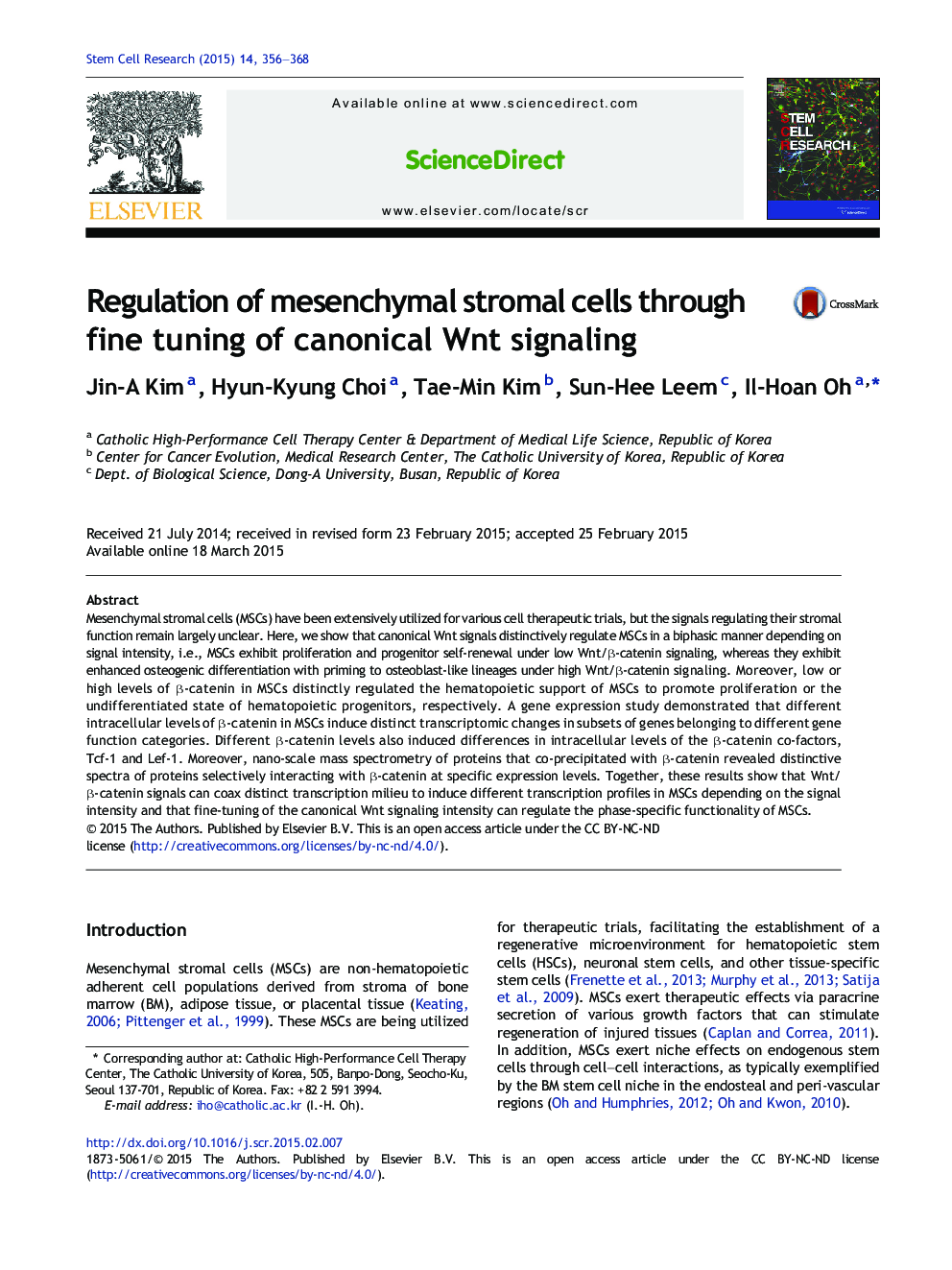| Article ID | Journal | Published Year | Pages | File Type |
|---|---|---|---|---|
| 2094189 | Stem Cell Research | 2015 | 13 Pages |
•MSC functions are distinctively regulated by the strength of Wnt/β-catenin signals.•β-catenin generates distinct transcription profiles with respect to the cellular level.•A broader spectrum of stem cells is regulated by fine-tuning of the Wnt signal.
Mesenchymal stromal cells (MSCs) have been extensively utilized for various cell therapeutic trials, but the signals regulating their stromal function remain largely unclear. Here, we show that canonical Wnt signals distinctively regulate MSCs in a biphasic manner depending on signal intensity, i.e., MSCs exhibit proliferation and progenitor self-renewal under low Wnt/β-catenin signaling, whereas they exhibit enhanced osteogenic differentiation with priming to osteoblast-like lineages under high Wnt/β-catenin signaling. Moreover, low or high levels of β-catenin in MSCs distinctly regulated the hematopoietic support of MSCs to promote proliferation or the undifferentiated state of hematopoietic progenitors, respectively. A gene expression study demonstrated that different intracellular levels of β-catenin in MSCs induce distinct transcriptomic changes in subsets of genes belonging to different gene function categories. Different β-catenin levels also induced differences in intracellular levels of the β-catenin co-factors, Tcf-1 and Lef-1. Moreover, nano-scale mass spectrometry of proteins that co-precipitated with β-catenin revealed distinctive spectra of proteins selectively interacting with β-catenin at specific expression levels. Together, these results show that Wnt/β-catenin signals can coax distinct transcription milieu to induce different transcription profiles in MSCs depending on the signal intensity and that fine-tuning of the canonical Wnt signaling intensity can regulate the phase-specific functionality of MSCs.
Graphical abstractFigure optionsDownload full-size imageDownload high-quality image (51 K)Download as PowerPoint slide
